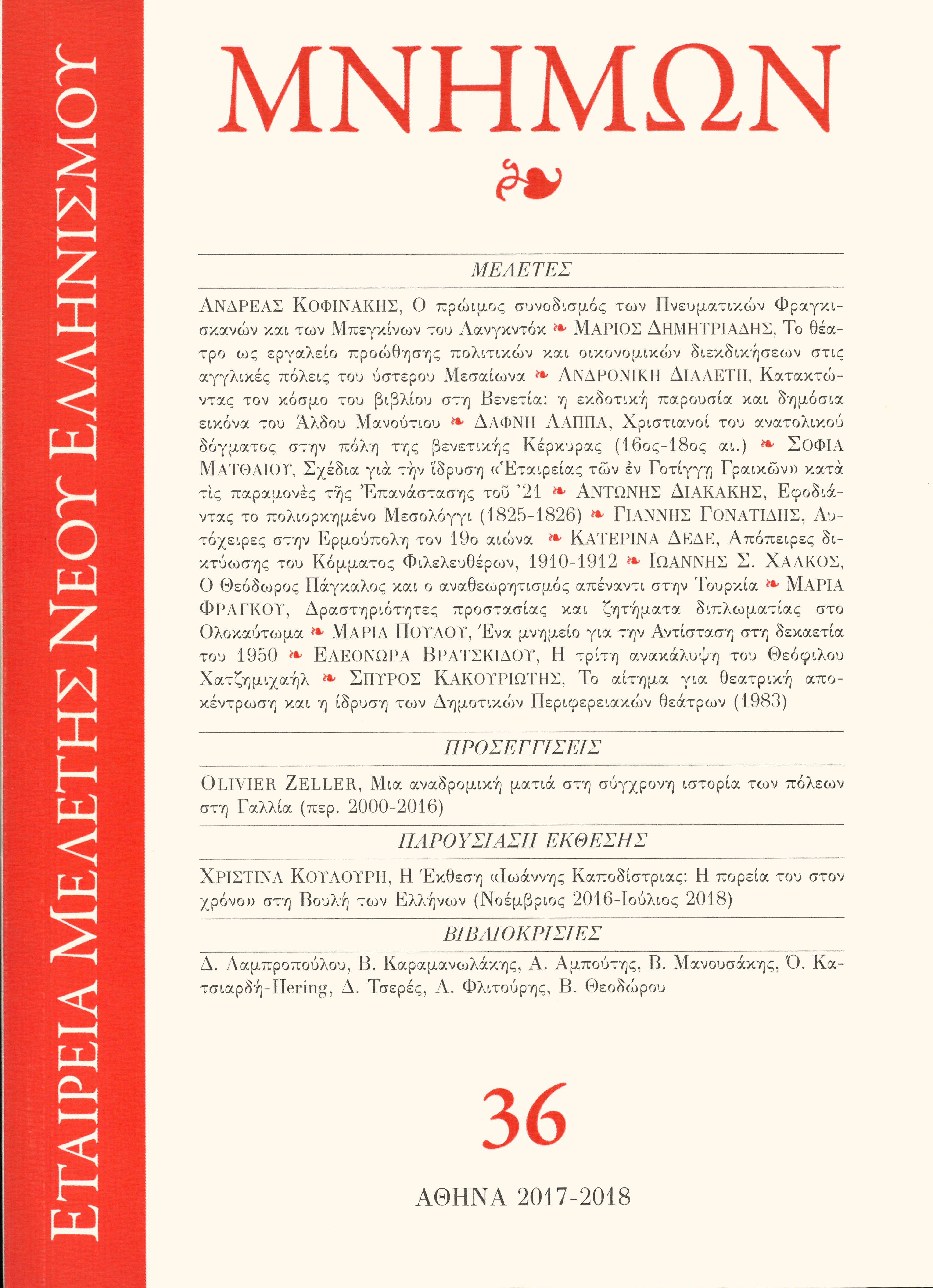THE DEMAND FOR DECENTRALIZATION OF THEATRES AND THE ESTABLISHMENT OF MUNICIPAL REGIONAL THEATRES IN GREECE (1983)

Abstract
This article examines the circumstances in which Municipal Regional Theatres were established in 1983, in accord with a decree issued by the then Minister of Culture, Melina Merkouri, in the recently elected PASOK government. The outcome of the reforms that the decree initiated lasted for many years and was one of the best and most effective efforts on the part of the Greek state towards implementing a decentralized cultural policy, something that cultural associations in the provinces had been demanding for years during the post-war period. Merkouri’s reform was a response to practices adopted during the Seventies by theatre groups and individual artists who were aware of social conditions in the provinces and replaced the previous policy whereby the National Theatre of Greece made occasional visits to the provinces. These new theatres instituted by the decree responded to demands that the rising provincial middle classes had begun to express during the Eighties.
In this article I examine the features of this reform in the context of the general policies of PASOK regarding decentralization and the empowerment of local administration. I also look at how these policies were received by rival political parties. I look in particular at the administrative rules applied to the management of these theatres and at the problems that arose from centralizing state supervision. I also examine the basic features of the repertory selection and the nature and characteristics of the actors involved up to the end of the Eighties.
Article Details
- How to Cite
-
KAKOURIOTIS, S. (2024). THE DEMAND FOR DECENTRALIZATION OF THEATRES AND THE ESTABLISHMENT OF MUNICIPAL REGIONAL THEATRES IN GREECE (1983). Mnimon, 36(36), 351–377. https://doi.org/10.12681/mnimon.36968
- Issue
- Vol. 36 (2018): Μνήμων
- Section
- ARTICLES

This work is licensed under a Creative Commons Attribution-NonCommercial-ShareAlike 4.0 International License.
The copyright for articles in this journal is retained by the author(s), with first publication rights granted to the journal. By virtue of their appearance in this open access journal, articles are free to use (with the exception of the non-granted right to make derivative works) with proper attribution for non-commercial uses (licence Creative Commons 4.0). EKT/NHRF retains the worldwide right to reproduce, display, distribute, and use articles published in Mnimon in all formats and media, either separately or as part of collective works for the full term of copyright. This includes but is not limited to the right to publish articles in an issue of the Journal, copy and distribute individual reprints of the articles, authorize reproduction of articles in their entirety in another EKT/NHRF publication, and authorize reproduction and distribution of articles or abstracts thereof by means of computerized retrieval systems.

